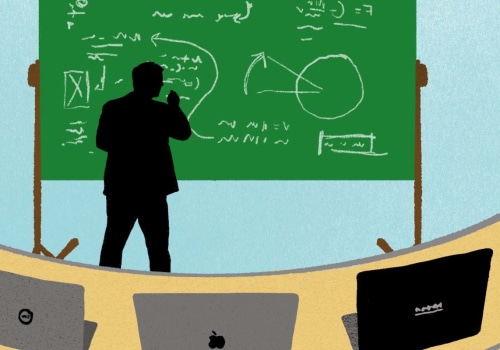Are you searching for the best tutoring websites to help you improve your note-taking skills? Do you want to enhance your ability to retain key points and ideas? Taking effective notes is crucial for academic success, but many students struggle with this task. In this article, we will discuss the most effective note-taking strategies, including how to prioritize important information and organize it efficiently. We will also explore techniques for taking notes quickly and reviewing them effectively. Keep reading to discover how to excel at note-taking and maximize your learning potential.
Being able to take effective notes is a critical skill for students at any level. It can help you stay organized, remember key information, and develop better understanding of course material. Here are some tips and techniques for taking effective notes that will help you be successful in school. There are several different types of note-taking strategies that can be used to maximize educational success. Some of the most common include the Cornell Method, outlining, mapping, and diagramming. Each of these strategies has its own advantages and can be used in different settings.
The Cornell Method is one of the most popular note-taking strategies. It consists of three sections: notes, cues, and summary. Notes are written on the left side of the page, cues are written on the right side, and the summary is written at the bottom of the page. This method helps to organize notes into categories and provides a quick review at the end of class.
Outlining is another popular note-taking strategy. This involves breaking down course material into main ideas and sub-points. This helps to organize information into hierarchical categories and can be used to quickly review material. Mapping is a visual approach to taking notes.
It involves drawing diagrams or flow charts that connect concepts together. This makes it easier to visualize relationships between different ideas and can help to make complex topics easier to understand. Diagramming is similar to mapping but involves drawing pictures or diagrams instead of text. This approach can be used to represent relationships between concepts in a more visual way. It is also important to review and organize notes regularly.
This will help to consolidate information and keep track of what has been covered in each class. Taking time to review notes after each class can also help to identify any areas where more study is needed.
Note-taking techniques vary depending on the type of class
. For example, lectures require active listening and note-taking, while seminars require more discussion and active participation. Reading-based courses may require different techniques, such as summarizing or highlighting key points.Technology can also be used to take notes more efficiently. There are a variety of note-taking apps and software that can be used to organize notes, highlight key points, record audio, or even transcribe lectures. These tools can help to streamline the note-taking process and make it easier to review material later on.
It is important to get the most out of class lectures and discussions
. Taking effective notes helps to ensure that key information is not missed and helps to maximize learning potential.Students should practice different note-taking strategies in order to find the one that works best for them.
The Benefits of Effective Note-Taking
Taking effective notes is an invaluable skill for students of any age. Not only does it help you stay organized, but it can also help you remember key information and develop a better understanding of course material. Here are some of the benefits that effective note-taking can offer:Organization and UnderstandingOrganizing your notes in a way that makes sense to you can help you better understand the concepts and material discussed in class. Being able to review your notes regularly can also help you maintain an ongoing understanding of the subject.Better Memory Retention
Taking comprehensive notes helps you commit key concepts and facts to memory.Reviewing your notes regularly helps reinforce the material and can be especially helpful when preparing for tests or exams.
Improved Focus
The act of taking notes helps you stay focused in class and encourages active listening. Writing down key points forces you to pay attention to what is being said and helps you remember the material discussed.Tips for Taking Effective Notes
Taking effective notes is an important skill for students of any age. To get the most out of note-taking, it's important to focus on capturing key information in a concise and organized manner. Here are some tips and techniques for taking effective notes that will help you be successful in school.Organize Your Notes:
Create a system for organizing your notes that works for you.Whether it's using dividers, highlighting key points, or using symbols to denote topics, having an organized system will make it easier to review your notes when studying.
Stay Focused:
Pay attention to the lecture or reading material and focus on key points. Note-taking should be done in real-time and not after the fact. If you find yourself becoming distracted, practice active listening techniques like summarizing what you've heard or asking questions.Write Concisely:
Make sure your notes are concise and to the point. This can be done by abbreviating words, writing short sentences, and avoiding unnecessary details.Capturing the main ideas while avoiding wordy explanations will help make your notes more organized and easier to review.
Enhance Your Notes:
In addition to capturing key information, you can also enhance your notes with diagrams, drawings, and other visuals. This can help clarify difficult concepts and make it easier to remember them during an exam. Taking effective notes is an essential skill for students of any age as it helps you stay organized, remember key information, and develop better understanding of course material. There are many benefits to taking effective notes, including improved studying and recall of important information. To take effective notes, students should practice active listening, ask questions, and use a variety of note-taking methods.Additionally, they should use an organized system to categorize and label notes. By utilizing these tips and techniques, students can create more organized and comprehensive notes that can help them be successful in school.







